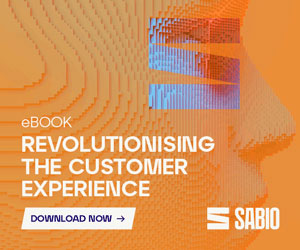Charlie Adams, an Operations Manager at Ordnance Survey, investigates what drives people and how to best motivate them.
Working in a contact centre can be challenging, so motivation is a huge factor in its success. The same is true for any team’s success, whether in business or sport.
Motivated teams are likely to stay longer, be productive, give great customer service, go the ‘extra mile’, all while being happy and engaged. Which, if you’ve ever worked in this environment, you’ll know is a lot easier said than done!
Motivation isn’t something you learn once. You don’t just read a book and suddenly you are highly motivated and able to motivate other people. So, how does it work?
What Is Motivation?
Motivation is a desire and energy to fully commit to a role, subject, task or goal. It is something that you can affect but you can not give it or take it away.
Motivation has factors (internal and external) that you can influence in a person, but you are not responsible for making somebody motivated. Motivation is something that individuals have to own for themselves.
As managers and leaders of contact centres, we can play a big part in creating the right structure and culture to foster a motivated workforce.
As managers and leaders of contact centres, we can play a big part in creating the right structure and culture to foster a motivated workforce. How we lay down the foundations for a motivated team differs between regions, countries, sales, tech support, night shifts, market sector etc., but the principles remain the same.
What Motivates People?
With so many factors affecting the uniqueness of motivation, it can be difficult to pinpoint someone’s motivation… but with a basic understanding you can do it.
What Motivates You Won’t Necessarily Motivate Others
Some people are motivated by money. Others by philanthropy. Some ‘just like doing a good job’ and some want to climb the career ladder. When you start breaking down people’s needs and wants even more, it becomes a whole new level of complicated.
But it’s worth doing, at least with your direct subordinates. It’s worth spending the time to understand what your team’s motivations are.
On an individual advisor basis, take the time to break down:
- Why do they want the money?
- Why do they like doing a good job?
- Why did they get out of bed and get to work on time today?
- What are their career goals?
As an example; if you know someone is motivated by their work–life balance, the offer to leave work early could be more motivating than a small cash reward (plus it could make better business sense).
If you know someone is motivated by their work–life balance, the offer to leave work early could be more motivating than a small cash reward.
Once we realise that motivation is not a one-size-fits-all thing, we have to adapt. We have to offer a number of initiatives that help to motivate. It has to become part of who we are and our culture. There is only so long you can keep offering bonuses before it becomes a standard expectation and stops being motivating.
How Do You Motivate Someone?
If you want some quick and easy tips to motivate your team, just do an internet search and you’ll find loads.
However, it’s a short-term fix that will only take you so far. To create a motivational strategy that’s long lasting, you’ll need to focus on some key themes: Reward, Empower and Inspire.
Reward
It’s not all carrot and stick. You can’t play off ‘giving people things’ (cash mainly) against the ‘threat or awareness of minimum targets’.
More Money Does not Equal Harder Workers
Motivation is not all about reward and punishment. You can’t just keep giving out higher bonuses every year in the hope the workforce will feel more motivated.
Motivation is not all about reward and punishment. You can’t just keep giving out higher bonuses every year in the hope the workforce will feel more motivated. That’s not to say rewards don’t have a place, but they should not form the main tool of your motivational strategy. Use rewards wisely.
Focus on ‘now-that’ rewards – these are the rewards that are a surprise to the person, as they learn about it after the event. “Well done for hitting your target today, here’s a £10 voucher.”
Try to limit ‘if–then’ rewards – these are rewards that people are informed of before the event. “If you hit today’s target you can get a £10 voucher.”
Using ‘if–then’ rewards can lead to a negative impact on a person’s intrinsic motivation (please note, ‘if–then’ rewards can be used effectively in a contact centre environment, but they can only be used when people are doing repetitive, non-creative tasks).
At Ordnance Survey, we have a programme called ‘Lifeworks’ through which employees can nominate one another for rewards (now-that rewards). These rewards are all cash vouchers ranging from £10 to £50, with team rewards also available.
This can be a great way to reward someone for being productive, receiving great customer feedback, or being helpful in any way. There really are no criteria for what you can nominate someone for, which leaves it open for anyone to be recognised for anything, it just needs to be approved by their manager.
Also, simply recognising someone can be a huge motivator, whether praising them in private or publicly (depending on their preference). Through Lifeworks, everyone at Ordnance Survey can give recognition to a colleague, which can then be seen publicly, with a leaderboard for those that get the most recognitions in a month.
Empower
In a contact centre we need to control some factors to manage resource – hitting the business’s KPIs, keeping costs down, all while pushing up the Net Promoter Score (NPS). As a manager, you must resist the urge to control everything.
Don’t Be Scared to Believe in People – Give Them Independence
To build a trusting relationship, you have to give people ownership of their role and offer opportunities for the team to work in their own way.
To build a trusting relationship, you have to give people ownership of their role and offer opportunities for the team to work in their own way. Allowing people to find their own way offers a sense of meaningfulness and responsibility, which of course leads to motivation.
Give the contact centre team autonomy where possible. One of the biggest ways the advisors are empowered at Ordnance Survey is by managing their own schedule. Let the team choose their own shifts, let the team work on ‘flexi-time’ and let the team work from home from time to time.
Choosing of shifts has to be done within rules to ensure resource requirements are met, but at Ordnance Survey we have email, social media, webchat and phone call shifts to choose from, and there is variety of start and finish times available.
On most shifts, the start and finish times are also flexible (so they can finish early if they want) and everyone can even accrue ‘flexi-time’ and use it to book days off.
Every advisor has the ability to work from home! If they have a minor disaster and the plumber is popping around, or if they’re getting a sofa delivered, they don’t need to use up their leave and put our resource under stress; instead they can put in a full day’s work at home.
All this flexibility leads to a better work–life balance, as people can manage the expectations from their home life against their time in the office.
The working from home capability came into fruition at Ordnance Survey when we had heavy snow earlier this year. None of the team could make it into the office, but (after some coordination and many Whats-App messages) we still opened the contact centre on time and the customers didn’t seem to notice any difference.
Follow the link to read an interesting article on the future of employee empowerment: What Does Employee Empowerment REALLY Mean?
Inspire
When we feel strongly connected with something it inspires us and provides us with a sense of purpose.
You can set up the best motivational framework, but it could still fail because of you.
Create a purpose, a reason to come to work apart from the money. Become a storyteller and connect a person’s role to the bigger picture, making it clear how important they are (because they really are!) and how they truly can make a difference in the organisation.
Become a storyteller and connect a person’s role to the bigger picture, making it clear how important they are.
Please don’t just use stats, as dry facts alone can be boring. Bring them to life using emotional language and make them mean something by sparking an emotional reaction.
Your business will have a vision, but does your contact centre? Or your team? Where is your future focus?

Charlie Adams
Ordnance Survey has created a clear ‘Line of Sight’ where everyone can see how they and their team fit into the bigger picture. Everyone can see how their role affects the company’s objectives.
To help further give the customer service team a sense of purpose, the Ordnance Survey contact centre has created a team charter, in which the team have set their expectations of each other. This helps to foster a sense of pride and keeps some basics in check like attitude and working better together.
For more on inspiring the team, read our article: How to Inspire Contact Centre Agents to Improve Their Performance
Have Fun With It!
Foster a positive environment. Play games, get involved, and keep smiling.
If you’re not feeling motivated from motivating, then you’re doing it wrong.
Thanks to Charlie Adams, the Customer Service Centre Operations Manager at Ordnance Survey, for sharing this article with us!
Author: Robyn Coppell
Published On: 30th Jul 2018 - Last modified: 31st Jan 2025
Read more about - Call Centre Management, Empowering Agents, Motivation, Reward and Recognition




































